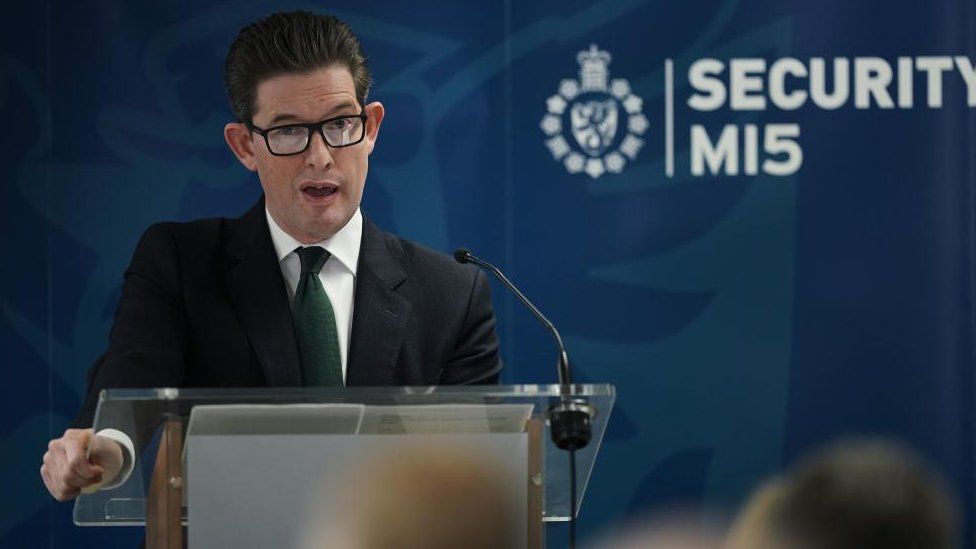
MI5 director general Ken McCallum briefed university leaders
Foreign states are targeting British universities in order to undermine national security, MI5 has warned.
Vice-chancellors from 24 leading universities were briefed on the threat by the security services and the government on Thursday.
They were warned cutting-edge research could be targeted by states to boost their own militaries and economies.
The deputy prime minister has announced a consultation on measures to protect UK universities.
There has been no direct reference to any one state, but Parliament’s intelligence and security committee warned last year that China could be gaining undue influence in British academic research.
Leaders from institutions including the University of Oxford, University of Cambridge and Imperial College London were told research in sensitive areas could be targeted by states intent on stealing intellectual property to enhance their own economic and military capabilities.
Felicity Oswald, interim chief executive of the National Cyber Security Centre, joined MI5 director general Ken McCallum at the meeting – which follows a government review of the national security threats facing higher education.
The protective measures the government will consult on have a particular focus on academic research that has a potential dual use in civilian and military life.
They could include processes to improve the transparency of funding, key university personnel being given security clearance and funding options to develop research security capability within universities.
Deputy prime minister Oliver Dowden said UK universities had thrived on being open “for a millennium” and the planned measures were not about creating barriers.
“This is not about erecting fences, this is about balancing evolving threats and protecting the integrity and security of our great institutions,” he said.
Science and technology secretary Michelle Donelan said universities were on the “front lines of a battle for information”.
“Maintaining the UK’s world-leading reputation as an academic superpower relies on having strong safeguards to protect research from those who wish to do us harm.”
Tim Bradshaw, who is the head of the Russell Group of leading research universities, said those institutions take their national security responsibilities “incredibly seriously”.
He said Russell Group universities already work closely with the government and the intelligence community to help “protect UK breakthroughs” in fields like artificial intelligence.
“But we also recognise security is a dynamic and evolving challenge which means we need the right expertise and intelligence to keep pace with this.”
The chief executive of Universities UK, Vivienne Stern, said the body has worked with the government for several years to ensure universities are equipped to “recognise and mitigate” national security risks.








